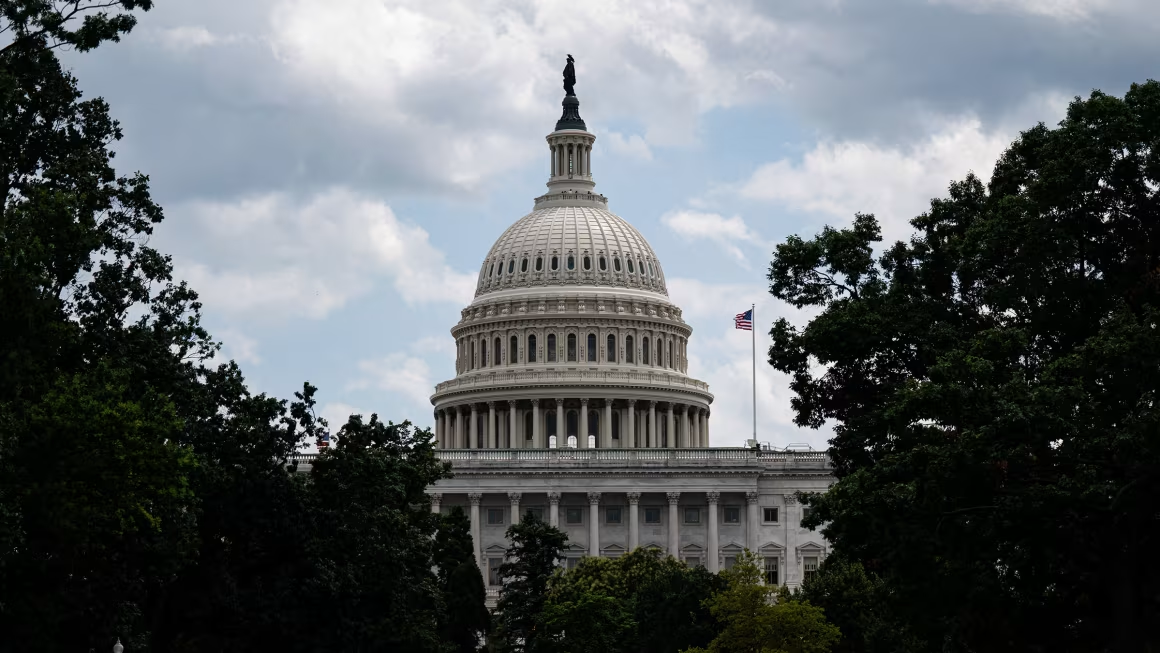In a narrow vote early Friday morning, House Republicans passed a sweeping $9 billion spending cut package targeting foreign aid and public broadcasting, delivering a significant win to President Donald Trump and his push to shrink the federal budget.
The measure, part of the Trump-era Department of Government Efficiency (DOGE) agenda, was approved 216-213, with just two Republicans breaking ranks. The bill now heads to the president’s desk for final approval.
What sets this move apart is the legal mechanism used to pass the bill. The package was enacted using a rarely invoked budget law that sidesteps the Senate filibuster, making Trump the first president in nearly three decades to employ the maneuver successfully. It underscores a moment of legislative deference to the executive branch, even on matters like spending, traditionally controlled by Congress under the U.S. Constitution.
Key Cuts: Foreign Aid and Public Media
The bill slashes nearly $8 billion from previously approved foreign aid programs. Much of this will impact operations of the U.S. Agency for International Development (USAID), as the administration continues efforts to scale back America’s global aid commitments.
Another $1.1 billion is being withdrawn from the Corporation for Public Broadcasting, which supports NPR and PBS, aligning with long-standing conservative criticism of federally funded media.
The original proposal called for even deeper cuts. Lawmakers had initially proposed slashing PEPFAR — a major U.S. program aimed at combating global HIV/AIDS — but dropped the plan following bipartisan backlash in the Senate. Even without the PEPFAR reductions, GOP leaders celebrated the bill’s passage, emphasizing it still delivers “significant reductions” to global health and aid budgets.
Epstein Files Transparency Demand Stalls Process
The vote wasn’t without political drama. A faction of House Republicans delayed final passage by demanding a separate commitment from leadership for greater transparency over the Jeffrey Epstein files. The issue created unexpected tension within the GOP ranks, as some lawmakers tied their support for the cuts package to unrelated calls for public release of sealed Epstein case documents.
House Speaker Mike Johnson eventually brokered a compromise, advancing both the spending bill and a symbolic, non-binding resolution encouraging the release of additional Epstein records. The resolution carries no legal weight, but it helped break the deadlock.
Government Funding at Risk?
While Republicans hailed the bill as a victory for fiscal responsibility, it has injected new uncertainty into the broader budget process. The current funding agreement for the federal government expires on September 30, and the bitter partisanship on display raises concerns about whether bipartisan cooperation is still possible.
Senate Majority Leader Chuck Schumer warned the vote undermines trust, suggesting Democrats may now hesitate to negotiate spending deals that could be reversed later under similar maneuvers.
As the bill awaits presidential signature, the broader implications for U.S. foreign aid policy, public media funding, and future budget negotiations remain to be seen.






